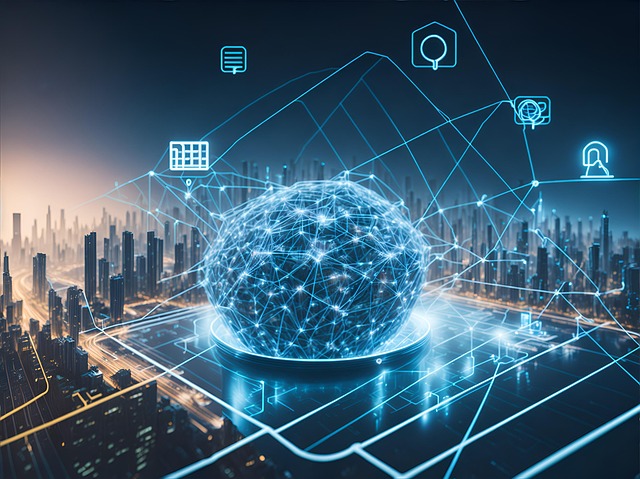AI-powered security camera analytics transforms long-term rental management by enhancing tenant safety and privacy through real-time detection of unauthorized access and damage, while simplifying landlord tasks with integrated FAQ bots that educate users about data handling and privacy rights. Despite concerns over tenant surveillance and privacy invasion, these systems can improve overall property security when implemented transparently and regulated, balancing advanced technology with individual freedoms.
In the evolving landscape of long-term rentals, Artificial Intelligence (AI) is introducing revolutionary changes through advanced security camera analytics. This technology promises enhanced safety and efficiency, but it also raises crucial questions about tenant rights and privacy. This article explores the implications of AI in rental properties, delving into how its analytics can impact tenant experiences while addressing common concerns through FAQ bots. Understanding these dynamics is vital for both property managers and tenants navigating this new era.
- Understanding AI-Powered Security Camera Analytics in Long-Term Rentals
- The Impact on Tenant Rights and Privacy Concerns
- FAQ: How Bots Can Address Common Questions About AI in Rental Properties
Understanding AI-Powered Security Camera Analytics in Long-Term Rentals

AI-powered security camera analytics is transforming long-term rental properties by offering enhanced safety and convenience for tenants while streamlining management tasks for landlords. This technology leverages machine learning algorithms to analyze live and recorded footage, identifying potential issues like unauthorized access or property damage in real time. By integrating AI into security systems, landlords can proactively address concerns, improve tenant satisfaction, and potentially reduce insurance claims.
Understanding how this tech works starts with FAQ bots that guide users through system features and data privacy practices, assuring tenants of their rights. These bots also assist in identifying suspicious activities, sending alerts to both tenants and landlords for prompt action. The analytics can provide valuable insights into overall property security, helping to identify areas for improvement and ensuring a safe living environment for all residents.
The Impact on Tenant Rights and Privacy Concerns

The integration of AI in long-term rental properties through security camera analytics raises important questions about tenant rights and privacy. As AI systems learn from vast amounts of data, including video footage, there’s a growing concern over how this information is used and protected. Tenants may have valid fears about their personal spaces being surveilled extensively, with AI algorithms potentially analyzing patterns and behaviors in ways that could invade their privacy. This becomes especially pertinent when considering the potential for AI to assist in tenant screening or even pricing decisions based on observed behavior.
To address these concerns, a transparent and regulated approach is essential. FAQs about how data is collected, stored, and used should be readily available to tenants. Bots or automated systems designed to interact with tenants regarding privacy matters can help dispel myths and provide clear information about rights. Ultimately, striking a balance between security measures and individual freedoms is crucial to ensuring tenants feel respected while landlords benefit from enhanced property management tools.
FAQ: How Bots Can Address Common Questions About AI in Rental Properties

Many landlords and property managers have concerns about implementing AI in their rental properties, especially regarding tenant privacy and security. However, AI-powered solutions can significantly enhance both through advanced analytics and efficient automated processes. Here’s how FAQ bots address common questions:
Q: How does AI respect tenant rights while monitoring rentals?
A: AI security cameras are designed to capture data ethically by employing facial recognition technology and object detection algorithms without compromising privacy. Bots can answer these concerns by explaining the legal boundaries, such as obtaining consent for certain data collection practices, ensuring secure data storage, and providing transparent communication about surveillance systems in place.
Q: Can AI bots replace human interaction in rental management?
A: While AI automates tasks like scheduling maintenance requests or processing rent payments, it does not intend to replace human connection. Bots can assist property managers by streamlining repetitive inquiries, allowing them to focus on building relationships with tenants and addressing complex issues that require empathy and personal attention.
AI-powered security camera analytics in long-term rentals presents both opportunities for enhanced safety and privacy challenges. While these technologies offer improved monitoring and potential crime prevention, it’s crucial to address tenant rights and privacy concerns. Implementing transparent practices and leveraging FAQ bots to educate residents about AI use can foster trust and ensure a harmonious balance between security and individual freedoms. By embracing AI responsibly, rental property managers can create safer environments without compromising the fundamental rights of their tenants.
